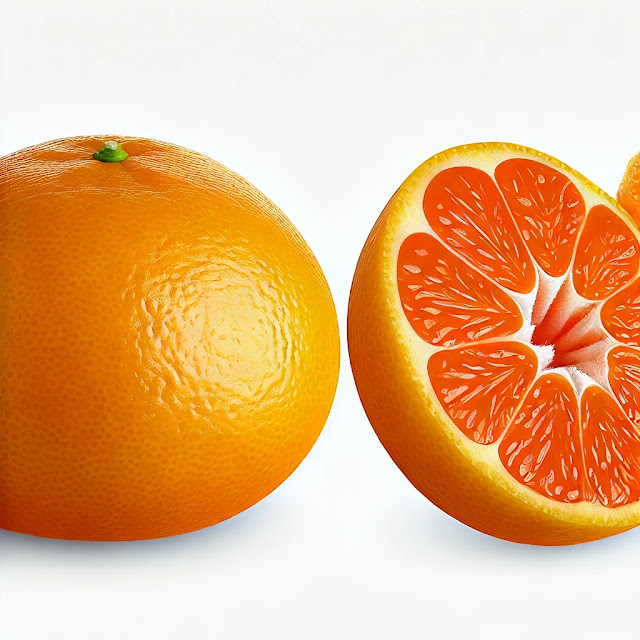Raspberries: Nature’s Tangy Superfood for a Healthier You
Overview:
Raspberries, with their vibrant red color and delicate structure, are not only a delicious fruit but also a nutritional powerhouse. These tiny fruits are packed with flavor and are often enjoyed fresh, in desserts, or as a healthy snack. Their balance of sweetness and tartness makes them a versatile addition to any diet, and they offer a range of health benefits.
Calories and Key Nutrients (per 100g):
A 100g serving of raspberries contains only 52 calories, making them an ideal low-calorie snack. They are rich in dietary fiber, providing about 7g per 100g, which supports healthy digestion. Raspberries are also high in vitamin C, which boosts the immune system, and contain significant amounts of manganese, vitamin K, and antioxidants. Compared to other fruits like strawberries and blueberries, raspberries stand out for their high fiber content and potent antioxidant levels, which help combat inflammation.
Health Benefits:
Raspberries are packed with antioxidants like quercetin and ellagic acid, which protect against oxidative stress and reduce the risk of chronic diseases, including heart disease and cancer. Their high fiber content supports gut health and helps regulate blood sugar levels, making them a great choice for people with diabetes. Additionally, the vitamin C and flavonoids in raspberries promote skin health, contributing to a youthful appearance.
Proper Consumption Methods:
The best way to enjoy raspberries is fresh, but they can also be frozen to retain their nutrients and used in smoothies or baked goods later. Raspberries can be sprinkled on cereal, blended into yogurt, or added to salads for a burst of flavor and nutrition. Another healthy option is to incorporate them into homemade jams or sauces with minimal sugar for a tangy spread that can be used on toast or in desserts.
Tasty Ways to Eat Raspberries (Recipes):
A simple yet delicious way to enjoy raspberries is to create a raspberry parfait. Layer fresh raspberries with Greek yogurt, honey, and granola for a nutritious and satisfying breakfast or snack. Another option is to make a raspberry vinaigrette by blending fresh raspberries with olive oil, balsamic vinegar, and a touch of honey for a sweet and tangy salad dressing.
Cautions When Eating Raspberries:
While raspberries are generally safe for most people, those with sensitivities or allergies to salicylates (a natural compound found in many plants) should consume them in moderation. Additionally, because raspberries contain natural sugars, people with diabetes should monitor their intake, although the high fiber content helps prevent rapid spikes in blood sugar.
Comparing Raspberries to Other Fruits:
Compared to blueberries and blackberries, raspberries offer a similar antioxidant boost but stand out for their higher fiber content. While blueberries are known for their cognitive benefits, raspberries excel in supporting digestive health. Both fruits provide essential vitamins and antioxidants, but raspberries are particularly beneficial for those looking to increase their fiber intake.
Who Should Eat Raspberries and Who Should Avoid Them:
Raspberries are an excellent choice for those looking to improve digestion, athletes needing recovery nutrients, and anyone seeking to enhance their antioxidant intake. However, individuals with salicylate sensitivity or those who require a low-fiber diet should limit their consumption.
Interesting Stories or Facts:
Did you know that raspberries have been cultivated for thousands of years and were highly valued in ancient Greece and Rome for their medicinal properties? Additionally, raspberries are actually part of the rose family, sharing a botanical lineage with some of the most fragrant flowers in the world.
Raspberry Culture Around the World:
In Europe, raspberries are a popular ingredient in desserts like tarts and cakes, while in North America, they are often enjoyed fresh or in jams. In countries like Russia, raspberries are made into tea, believed to help fight colds. In the UK, raspberries are a common component of the classic dessert "Eton mess," made with crushed meringue, whipped cream, and fresh raspberries.
Scientific Research on Raspberries:
Recent studies have shown that the antioxidants in raspberries can help reduce inflammation and protect against cardiovascular diseases. Other research has explored the potential of raspberries in cancer prevention, thanks to their high levels of ellagic acid. Additionally, raspberry consumption has been linked to improved cognitive function and memory retention in aging populations.
Conclusion:
Raspberries are a delicious and versatile fruit packed with essential nutrients, antioxidants, and fiber. Their numerous health benefits make them a great addition to any diet. However, it's important to be mindful of individual dietary needs and sensitivities when consuming them.
This information may not be entirely accurate, so if you have any medical conditions, please consult a doctor before consuming raspberries.











Comments
Post a Comment